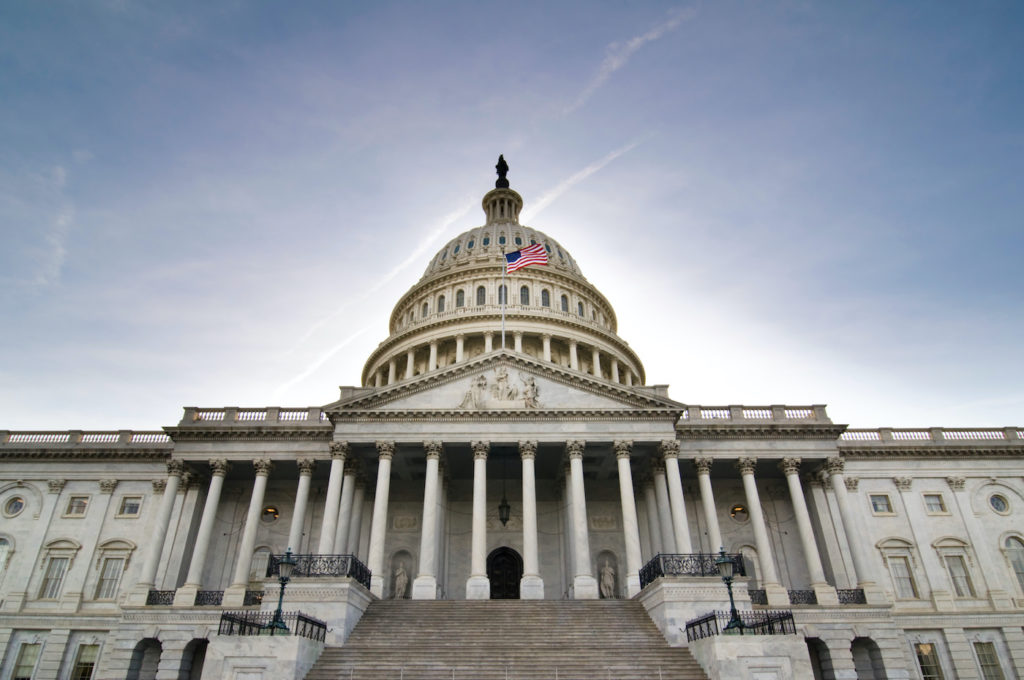In their analysis of the 2022 midterms, commentators on both left and right have suggested that voters’ support for legal abortion was a decisive factor in the historic Republican underperformance.
The simplest form of the argument from abortion activists: the midterms demonstrated major backlash to Dobbs and suggest that most Americans want permissive abortion laws. The results, in other words, are a mandate in favor of abortion on demand.
And the simplest form of the argument from some observers on the right: being pro-life is electorally costly for Republicans—perhaps too costly to be worth it—because most Americans reject the pro-life position. Being actively and vocally pro-life, in other words, hinders the GOP more than it helps.
Both of these claims demonstrate an unsophisticated grasp of the abortion debate and the intricacies of elections. They fail to take into account the complexities of Americans’ views on abortion. They fail to heed significant data showing that Americans want to protect unborn children throughout most of pregnancy. They fail to acknowledge the many other factors at play in every race—the effects of candidates and their messaging, the effects of spending advantages, the effects of confusingly worded ballot measures, the effects of media and advertising campaigns designed to mislead.
Start your day with Public Discourse
Sign up and get our daily essays sent straight to your inbox.
The midterms do not tell any single, clear-cut story about the future of abortion policy and the pro-life movement. Instead, they offer a number of lessons about how to be effective on the issue—and Republican politicians should take this defeat as an opportunity to learn them. Abortion can be a winning issue for conservatives, but only if politicians treat it like one.
Lesson No. 1: Support for pro-life policies is not an electoral loser, and in fact it can help win elections if Republicans run otherwise solid candidates who are good at pro-life messaging. In five major races—the gubernatorial contests in Florida, Georgia, Ohio, Oklahoma, and Texas—Republican governors who signed pro-life laws in their last term won reelection handily. None of them shied away from their pro-life stance, despite taking heat from the media and their Democratic opponents on the issue.
If support for legal abortion had been top-of-mind for voters, presumably these Republican governors would’ve paid a steep price. Instead, each of them ran substantially ahead of other Republicans in their own states, suggesting that GOP underperformance had much more to do with a variety of other factors.
Lesson No. 2: Americans aren’t enthralled with any of their viable options on abortion policy, but they dislike the Democratic position most. One interesting piece of data on this point: a CBS News exit poll found that voters said they trusted Democrats more than Republicans to handle abortion—but only by ten points. That hardly suggests a Dobbs backlash, nor does it suggest a strong national preference for either legal abortion or the Democratic position. It is more of a resigned sigh, a sign that the battle for hearts and minds is very much alive.
Meanwhile, plenty of data show that Democratic politicians are deeply out of step with the average American—and their own voters. The official position of the Democratic Party: abortion for any reason should be legal at all stages of pregnancy. It should be funded in all cases by the taxpayer. Abortion should no longer be “safe, legal, and rare,” because “rare” implies that there’s something wrong with abortion. States should not be permitted to pass pro-life laws, even to impose safety standards on abortion clinics or to prohibit discriminatory abortions chosen on the basis of the child’s race, sex, or disability diagnosis. Health-care professionals should be required to perform abortions even when it contradicts their religious or moral beliefs or their best medical judgment. Yet doctors should not be required to care for newborn babies who survive an attempted abortion; that should be left up to pregnant mothers and abortionists.
Plenty of data show that Democratic politicians are deeply out of step with the average American—and their own voters.
Despite the fact that nearly all national Democratic politicians embrace each of these positions, extensive polling shows that none of them is popular, even among Democratic voters. Fewer than 20 percent of Democrats, for instance, say that elective abortion should be legal within the last three months of pregnancy—much less that it should be taxpayer-funded and performed by coerced doctors. Meanwhile, nearly three-quarters of Americans say that abortion should be permitted only in the first three months of pregnancy, only in cases of rape or when a mother’s life is at risk, or not at all. In short, there is a national consensus against the Democratic Party’s position on abortion.
Lesson No. 3: Abortion can be a winning issue for Republicans, but it won’t be unless they decide to treat it like one. For decades, most Republicans at the federal level have run from abortion at every conceivable opportunity. They’ve bellyached about Roe v. Wade at the appropriate time of year, to be sure. They’ve held the occasional (failed) vote to defund Planned Parenthood. They’ve made sure to gesture at the dignity of unborn children during their reelection contests. But rarely have GOP politicians shown any real desire to treat abortion policy like the wedge issue that it is.
Most Americans don’t yet support protections for all unborn children from the moment of conception. But the pragmatic Republican position—embracing the most pro-life policy that also lines up with public opinion on our way to the goal of total abolition—is far more popular than the Democrats’ all-or-nothing stance.
Strategic incrementalism on abortion is a major political advantage, and Republicans should view it as such. Look again to the states that enacted protective pro-life laws in recent years. In none of those states did state-level Republicans take major electoral heat, because lawmakers intentionally chose policies that most voters support.
Democrats, by contrast, don’t indulge in incrementalism; they are abortion absolutists. They don’t vote for born-alive or pain-capable bills. They don’t support conscience rights for doctors. They don’t support bans on discriminatory abortions. They wish to forbid states to pass pro-life laws. They insist on abortion throughout pregnancy, for any reason, funded by taxpayers. These positions are popular with just a small fraction of the American public.
Had the national GOP coalesced around such a bill before Dobbs was handed down, it would have set a unified, popular Republican position from which to begin the post-Roe debate.
Therein lies the political advantage for Republicans—but it’s only an advantage if they decide to take it. In September, Senator Lindsey Graham demonstrated what this might look like, introducing a fifteen-week abortion ban, which most Americans support. But only a handful of his fellow Republicans agreed to sign on as cosponsors, while some who declined to do so offered the dubious excuse that state governments alone should handle abortion policy, despite the fact that they have voted in the past for federal gestational-age limits.
Had the national GOP coalesced around such a bill before Dobbs was handed down, it would have set a unified, popular Republican position from which to begin the post-Roe debate. It would have preemptively debunked claims that the GOP aimed to ban all abortions right out of the gate, and it would have exposed Democratic extremism when they refused to support something as moderate and popular as a fifteen-week ban. In such a scenario, the midterm contests probably would have featured a very different messaging battle on abortion, one that favored pro-lifers.
Lesson No. 4: Pro-life politicians must learn to rebut the falsehoods of abortion-rights activists. As noted above, the Republican position on abortion is far more popular than that of Democrats. If the GOP isn’t appealing to voters on the issue, it is because of the major disconnect between the parties’ positions and what voters believe those positions to be. It’s a messaging problem; Republicans have a winning message on abortion, but they fail to articulate it.
To be sure, abortion advocates have the major advantage of support from nearly every major media outlet, which enables them to trumpet their message and silence counterarguments. But it would be harder for them to succeed if Republicans were able and willing to eviscerate their lies.
Take as an example the abortion debate since Dobbs, dominated by the false claim that pro-life laws will prevent women from obtaining emergency care for pregnancy complications. Imagine if, in every state with a pro-life law that took effect after Dobbs, Republican lawmakers had released coordinated, cogent, fact-based, and compassionate statements about how their laws protect unborn children and pregnant mothers. Imagine if they had managed to foresee this highly predictable argument from the left and had taken steps to rebut it in advance, while in the process of passing their bills. Imagine if every GOP politician gave interviews explicitly detailing why elective abortion is not a health-care procedure and is never medically indicated—why, indeed, abortion isn’t beneficial to women’s health and often harms women. The Republican choice not to develop such a strategy doesn’t prove that the pro-life message has failed; it proves only that Republicans have failed to articulate that message.
The 2022 midterms don’t tell a story of pro-life defeat. They show a path to victory, with effective pro-life leadership as a crucial part of Republican success. No longer can GOP politicians scapegoat the pro-life movement for their own electoral failures. The American people are open to the pro-life message. Republicans must have the courage to share it.














